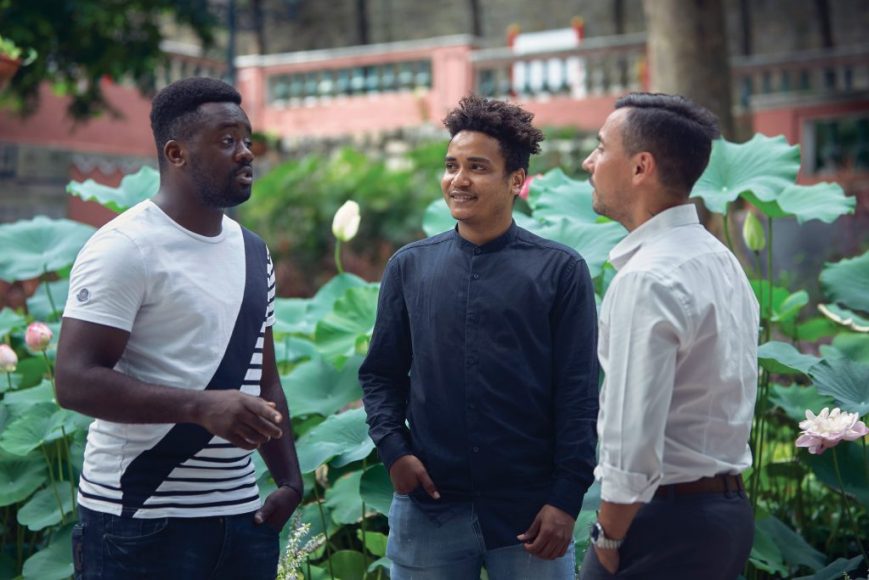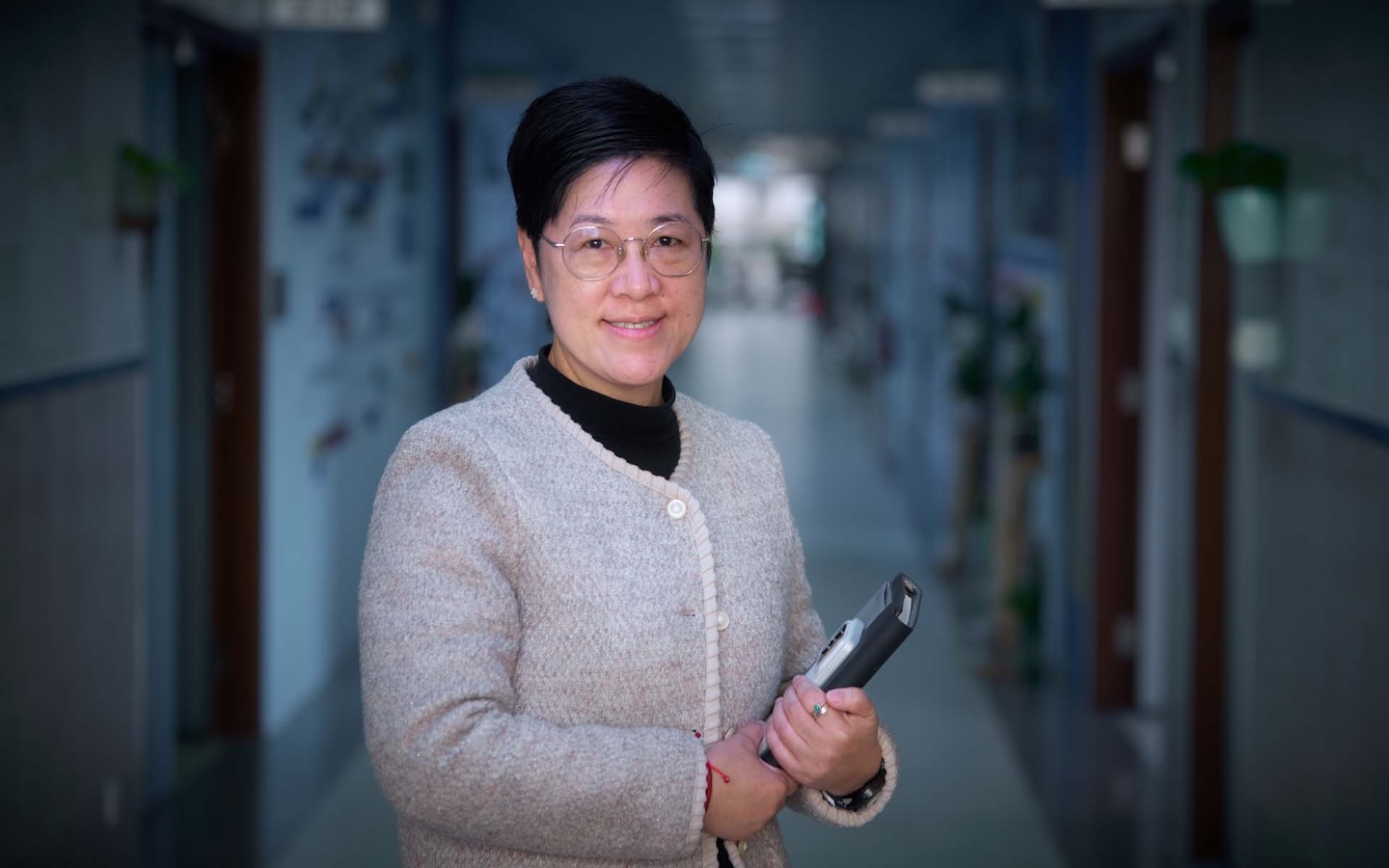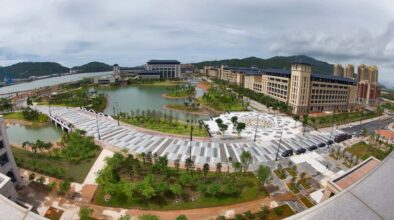More students from Portuguese-speaking countries are taking up higher education courses in Macao every year. We meet a handful of these young learners and find out why they chose to study so many miles away from home.
A crossroads between European and Asian cultures. That’s how Macao has been described for hundreds of years. And with this crossroads comes a world of education – the city is the perfect place of learning about both East and West. Ever since the world’s first Western university in Asia was founded in Macao in 1594 by Jesuits – St Paul’s College – the city has become a hotbed of learning for all ages. But Macao also holds another feather in its educational bow: it is a perfect centre of learning for the world’s eight Portuguese-speaking countries. Thousands of students from PSCs have flocked to Macao to learn over the past 450 years.
Today, nearly 300 students from the world’s PSCs – namely Portugal, Brazil, Angola, Guinea-Bissau, Cabo Verde, Timor-Leste, São Tomé e Príncipe and Mozambique – attend Macao’s universities and higher education institutions. This is twice as many students compared to just five years ago – and education authorities in the city say the number of Lusophone students studying for PhDs is increasing at an even faster rate. It’s no secret that Macao wants to be a knowledge hub for students for PSCs and, so far, it’s achieving its aim.
The real stories, however, come from those students themselves. Some come from extremely poor backgrounds. Others have had to make massive life-changing decisions before they opted to leave their homeland and move to Macao to give themselves more opportunities to make their lives better. A few of these students from different PSCs have spoken with Macao Magazine and told us why they chose to learn at China’s Portuguese-speaking crossroads.
An exact science
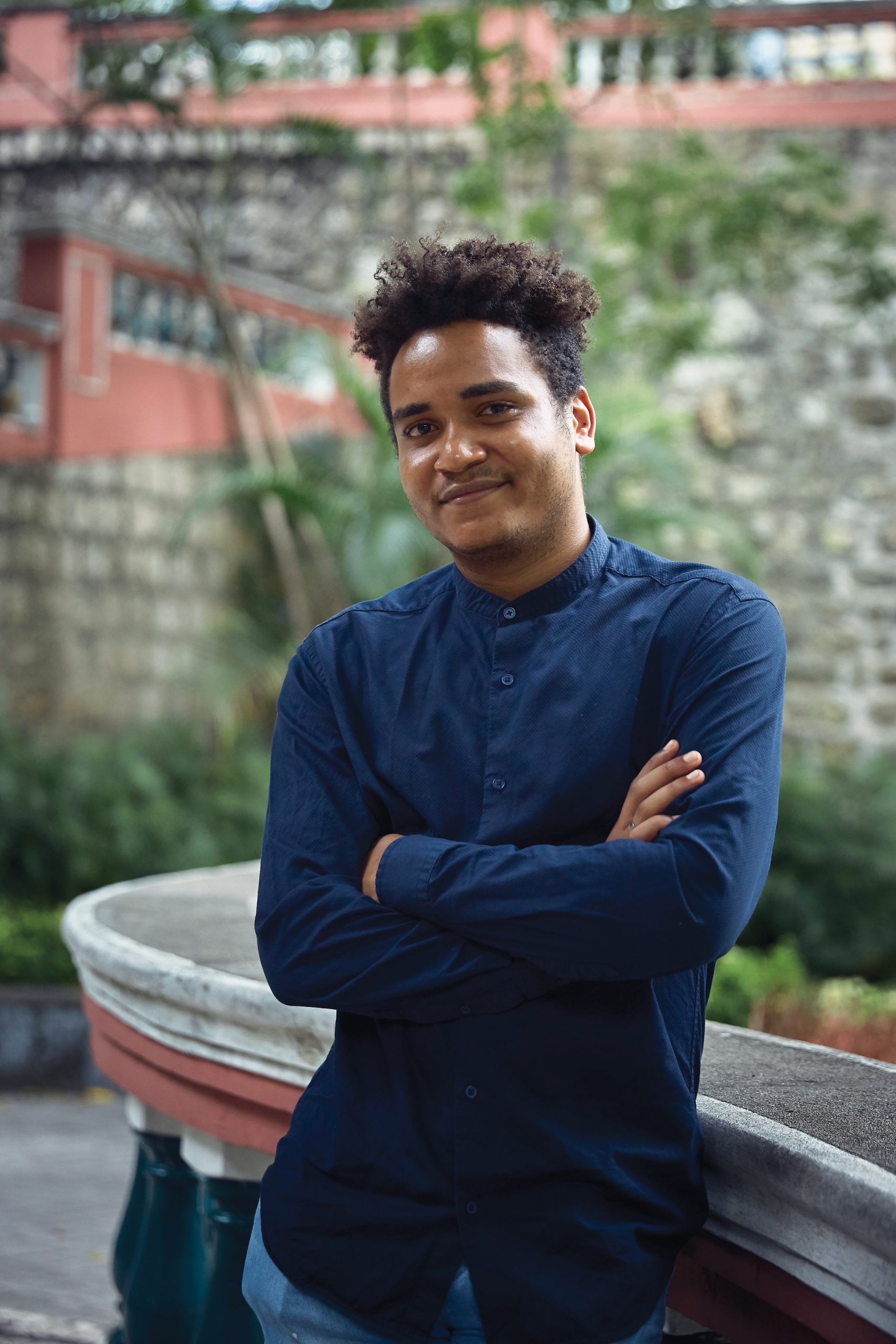
Hundreds of courses are on offer in Macao – and that includes ones devoted to teaching. The city is known for its higher education offerings, so it’s no wonder that many students from PSCs travel thousands of miles to a new, unknown culture just so they can get ahead in the world of teaching. In the case of Pablo Titosse, however, it wasn’t just his desire for an outstanding education that brought him from Mozambique to Macao. It was also his pursuit of love that led him here.
Titosse, who is 22 years old, is studying for a bachelor’s degree in education at the University of St Joseph (USJ). His journey began in 2018 when he was using Instagram in Mozambique. He came across a girl from Angola who he liked and got in touch. It turned out she had left her homeland and was studying for a psychology degree at USJ in Macao. The couple hit it off, so during Christmas in 2018, Titosse travelled to Macao so they could meet in person. Immediately, he fell in love with both his new partner and this incredible city. By the end of his trip – and impressed with the education opportunities at USJ – he’d made up his mind to move to Macao.
The trip back to Titosse’s hometown of Beira, which is on the east coast of Mozambique, was short and sweet. “I went to Mozambique only to say goodbye,” he recalls. He applied for a scholarship at USJ last year and, fairly swiftly, was accepted. He then moved to be with his partner and to start his new course. He says that the fact his girlfriend was already in the city, plus he’d already got to know her friends, made it easy to settle in.
Since those first few days living in Macao, Titosse says his course at USJ has been ‘opening up his horizons’. He admits his Chinese classmates have taught him a lot, as have the teaching staff who hail from Europe. He says the course, classmates and teachers have been setting him up for ‘a life as a teacher or maybe even a writer’. He also says he’s happy in Macao despite finding it hard to communicate with many locals. “I thought that Portuguese was spoken widely in Macao,” he says, “but I’ve discovered that you seldom find someone who speaks the language.” He is trying to learn to speak Cantonese but admits the lessons have been tough and he’s had problems remembering words and phrases. He does, however, speak basic English.
Education and his girlfriend are two of Titosse’s great passions. His third is poetry. For him, Macao presents both opportunities and inspiration for his art. “I spend a lot of time writing my poetry,” he says. “Macao gives me a lot of inspiration. I have a lot of freedom in Macao to think what I want to think and say what I feel. Being here helps me to organise my ideas and I fit well into the city’s multicultural setting.”
The aspiring poet, whose recent piece on Macao is on the opposite page, says he wants to use his poetry as a way of promoting the African PSCs in Macao. “People often only know about Portugal and Brazil,” he says, “but not many know Mozambique or Angola.”
Titosse cites acclaimed poet and writer Mia Couto, who won the Camões Prize in 2013 – the most important literary award in the Portuguese language – and much-loved writer Ungulani Ba Ka Khosa as two Mozambican men who he admires for ‘going deep into what Mozambican culture is all about’ and for promoting their country’s literature on an international scale. Titosse says that in two years’ time, once he has finished his degree, he plans to stay in Macao for a few more years so he too can work on a literary masterpiece. “I love to use reality to transmit what I think,” he says. “I create my own little world.”
Open for business
Another student from Africa – this time the west coast – who travelled to Macao to further his studies is 28-year-old Mamadu Fati. He left his computer engineering course at a higher education institution in his native Guinea-Bissau just so he could further his education in Macao.
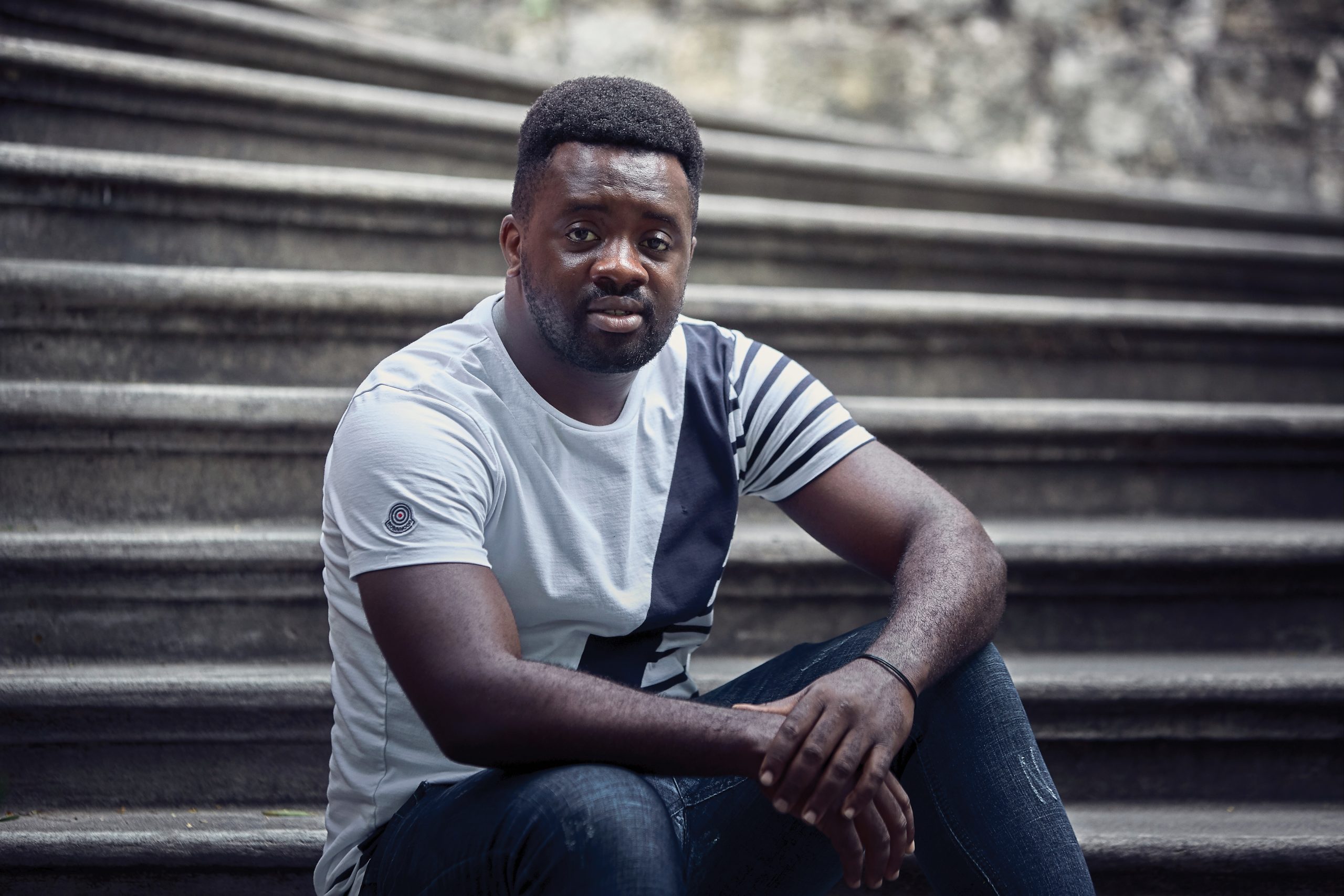
He also studies at USJ on a business management course. “At the time [of applying],” he says, “business was the only opening available and I did not want to miss my once-in-a-lifetime opportunity to study abroad.” Starting his second year, he plans to return to his homeland in a couple of years’ time, once he’s got his degree.
The nephew of a former Guinea-Bissau ambassador to Beijing, Fati learned about the opportunities given to students from PSCs in Macao a couple of years ago and, after some thought, decided to make the move in what became his first-ever trip overseas. He says that adapting to Macao life was not easy – not because the city is hard to live in but because he missed home so much. “After my first few days here,” he says, “I started feeling the longing you get when you’re distant from those people you love. I was always thinking about my friends and family’s love and affection which I don’t get in Macao.” Fati says that has passed, though, and now life in Macao is easier and he ‘feels stronger’. He says he has now found a new ‘family’ in Macao among his colleagues from all over the world.
“The quality of teaching in Macao is far better than in Guinea-Bissau,” says Fati. Being exposed to a multicultural environment, in college and everyday life, is also a major plus for him. When not studying, Fati spends time with other African students in Macao – many from other PSCs. He listens to music, watches movies and studies but he does admit that life in Macao isn’t all about the business books. He says he likes to go out and learn from the different people and cultures in the city so he can gain experience to take back home. He adds that, for now, he is concentrating on ‘improving his skills and links’ in business so that when he goes back to Guinea-Bissau he can start up his own company – perhaps an information technology enterprise. “I want to support the development of a stronger and more united society to the advantage of everyone in my country,” he concludes.
From CV to PR
China has always been on Sofia Blacky’s radar. Hailing from Praia, the capital city of Cabo Verde, this practical and focused 19-year-old always wanted to study abroad in a ‘culture that was as different’ as possible to her native Portuguese-speaking African homeland. In her mind, that culture was always going to be the Chinese one. She says her goal has always been ‘to learn as much as possible’ from her Asian experiences.
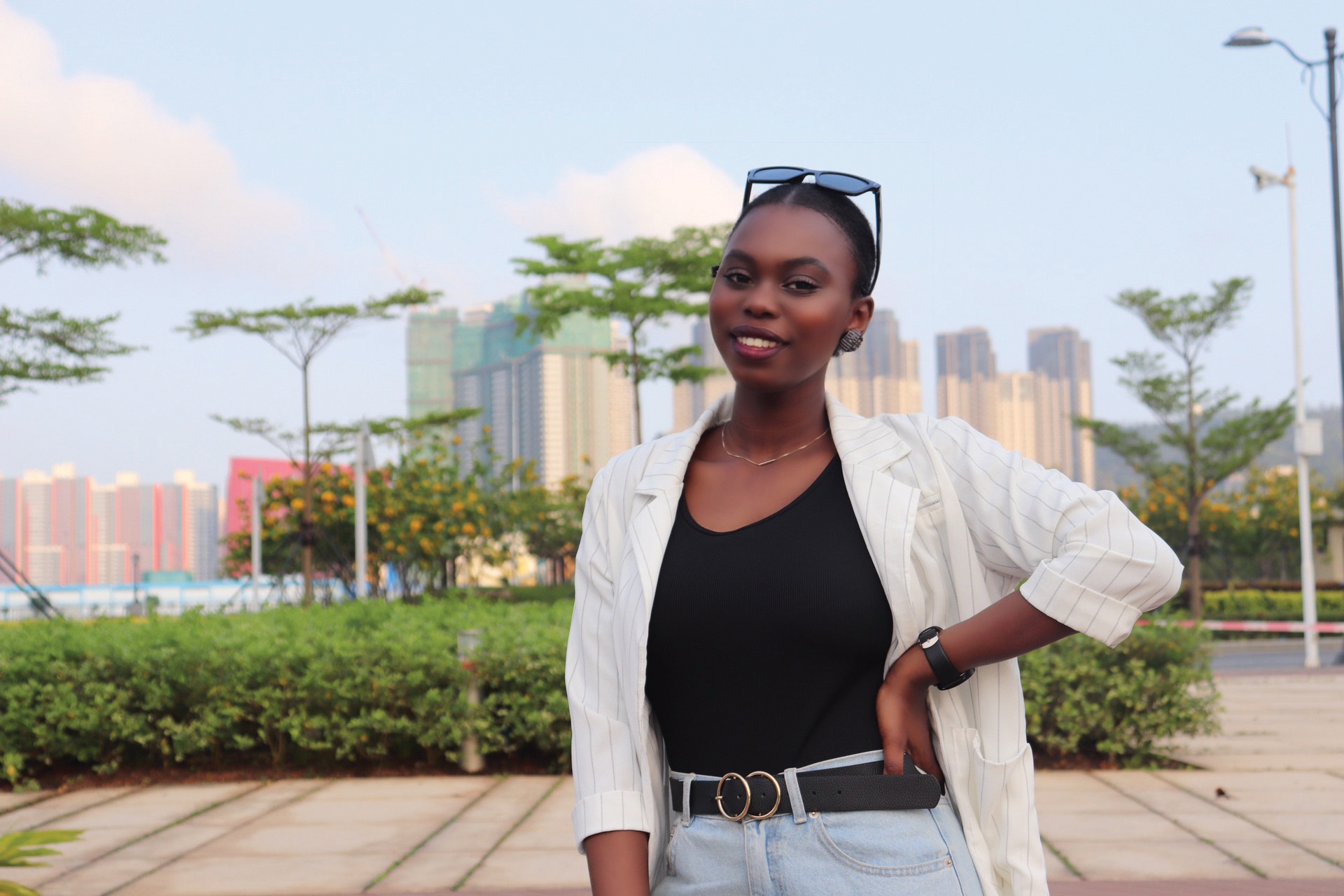
Blacky is now in her second year of a media degree at the University of Macau (UM). She travelled almost 8,500 miles to get here after learning about a scholarship opportunity at the UM but she admits she knew nothing about the city beforehand. But she searched online and says she was surprised to learn about this Portuguese-speaking corner of China. “It was a perfect match,” she says.
Adapting to Macao life was ‘no big deal’, says Blacky. “I managed to settle in quickly,” she says. “There was no cultural shock whatsoever. I was ready because I did my research before coming to the city and I learned about the culture. I already knew that the people in Macao, for instance, are more reserved than we are in Africa.” She says she’s spent this summer in Macao due to the travel restrictions in place during Covid-19 and, as a result, she’s tried new culinary experiences like eating sushi and has also started to learn Mandarin ‘using an app and YouTube courses’. This month, she says she will start ‘real’ Mandarin classes at her university.
Blacky’s goals are clear: first, to begin a career in a public relations (PR) company and in the future to ‘be the CEO’ of her own PR company, either in Cabo Verde or Nigeria, where her parents were born. She says she will not stay in Macao in the long-term because she prefers the African or European ‘social lifestyle’. As for the quality of teaching and facilities at the UM, Blacky is full of praise. “The teachers are perfect,” she says, “as are the research materials. We also have a huge library and state-of-the-art computers. I know I will leave Macao well-prepared for my future.”
Outstanding scholarships
To strengthen the exchange between local higher education institutions and their counterparts in the PSCs – and to attract outstanding students from these countries to study in Macao – the government’s Higher Education Fund last year launched a Scholarship for Outstanding Students Studying in Macao programme which is aimed exclusively at both students from PSCs and members of the Association of Southeast Asian Nations (ASEAN), which covers 10 countries in Southeast Asia. Seven students are already on the programme, each hailing from São Tomé e Príncipe, Mozambique or Guinea-Bissau and each studying at either the Macao Polytechnic Institute or the USJ.
This comes after the USJ, the University of Macau and the Higher Education Bureau joined forces in October 2018 and organised the First Forum for Heads of Higher Education Institutions of China and Portuguese-Speaking Countries, an event that attracted higher education institutions and organisations from across the PSCs, as well as from Hong Kong, Macao and 10 provinces and cities on the Mainland. A joint Declaration of Collaboration in Higher Education in Macao was signed at the University of Macau event by institutions from China and the PSCs. Its intention was to strengthen the co-operation between all parties and to promote educational, cultural and economic exchanges.
A statement from the Higher Education Bureau sent to Macao Magazine says: “As a business services platform between China and the PSCs, the MSAR government has attached great importance to nurturing Chinese-Portuguese bilinguals.” It also says that, in recent years, many efforts have been made ‘to build Macao into a training base for Chinese-Portuguese talents and to strengthen the exchange and co-operation between local institutions and PSCs’.
Platform for change
In March last year, an online platform known as the ‘Information Platform for Higher Education in China and the Portuguese-speaking Countries’ was launched with all of the institutions that participated in the October 2018 forum – along with more than 40 universities from the Mainland that offer programmes in Portuguese studies – being invited to register as members. The platform provides information on academic activities, teacher-student exchanges, co-operative research projects and higher education support measures. It also offers communication and translation services to its members. It is hoped that members will detail their exchanges and co-operative projects on the platform thus improving communication between them all.
The statement from the Higher Education Bureau says: “Over the years, the MSAR government, higher learning institutions and related Portuguese organisations have fostered a healthy relationship in promoting exchange and co-operation with the PSCs.” This relationship was shown in December when the bureau signed a co-operation agreement with Portugal’s University of Porto and the Instituto Português do Oriente – in English, the Portuguese Institute of the East, a Portuguese public entity based in Macao that promotes the Portuguese language and Lusophone culture in Asia – for Macao students to study in Porto. The Higher Education Bureau statement continues: “Macao will also enhance the interface of academic and research projects, and co-operation and exchanges between teaching staff, research personnel and students in the PSCs and other regions.”
Other government schemes that add weight to the educational links between Macao and the PSCs include the Specialised Subsidy Scheme for Chinese and Portuguese Bilingual Talent Training and Co-operation of Education and Research. This scheme, which aims to encourage higher education institutions in Macao and the PSCs to jointly organise exchange programmes that enhance the professional capabilities of academic and research staff, now funds a wide variety of academic projects. Through the promotion of research initiatives and with the co-operation of higher education institutions around the world, it aims to expand the capabilities of academic staff in Macao.
Also being implemented is a scheme that provides financial incentives and support for Macao students to enrol at the University of Porto every year for a range of courses, with those selected receiving financial support for both the preparatory and bachelor’s degree courses. There are five subsidy recipients this year, whose majors include law, applied linguistics and dental medicine. Also being arranged between educational institutions in Macao is an ‘alliance’ that will promote the training of Chinese-Portuguese bilingual professionals. This is expected to be a major topic at the Second Forum for Heads of Higher Education Institutions of China and Portuguese-Speaking Countries, which is scheduled to take place in early November.
Learning from Macao
One student from a PSC – Portugal, in fact – has gone so far as to get involved in Macao’s drive to connect China with the PSCs. Pedro Paulo, a PhD student at the City University of Macau (CityU), believes Macao has all it takes to be a major regional knowledge hub: the people, the brains and the financial means. Eight years ago, he was studying in London but left for China to teach English in a school in Hangzhou, a city he could not even place on a map at the time. A year later, he decided to leave and a new opportunity arose in Hainan. Before taking up the new job, he went back to Portugal for a holiday and a friend told him about an opportunity to teach English in Macao. He took it and enjoyed it so much in the city that he ended up staying and applying to teach at local universities. He never went to Hainan.
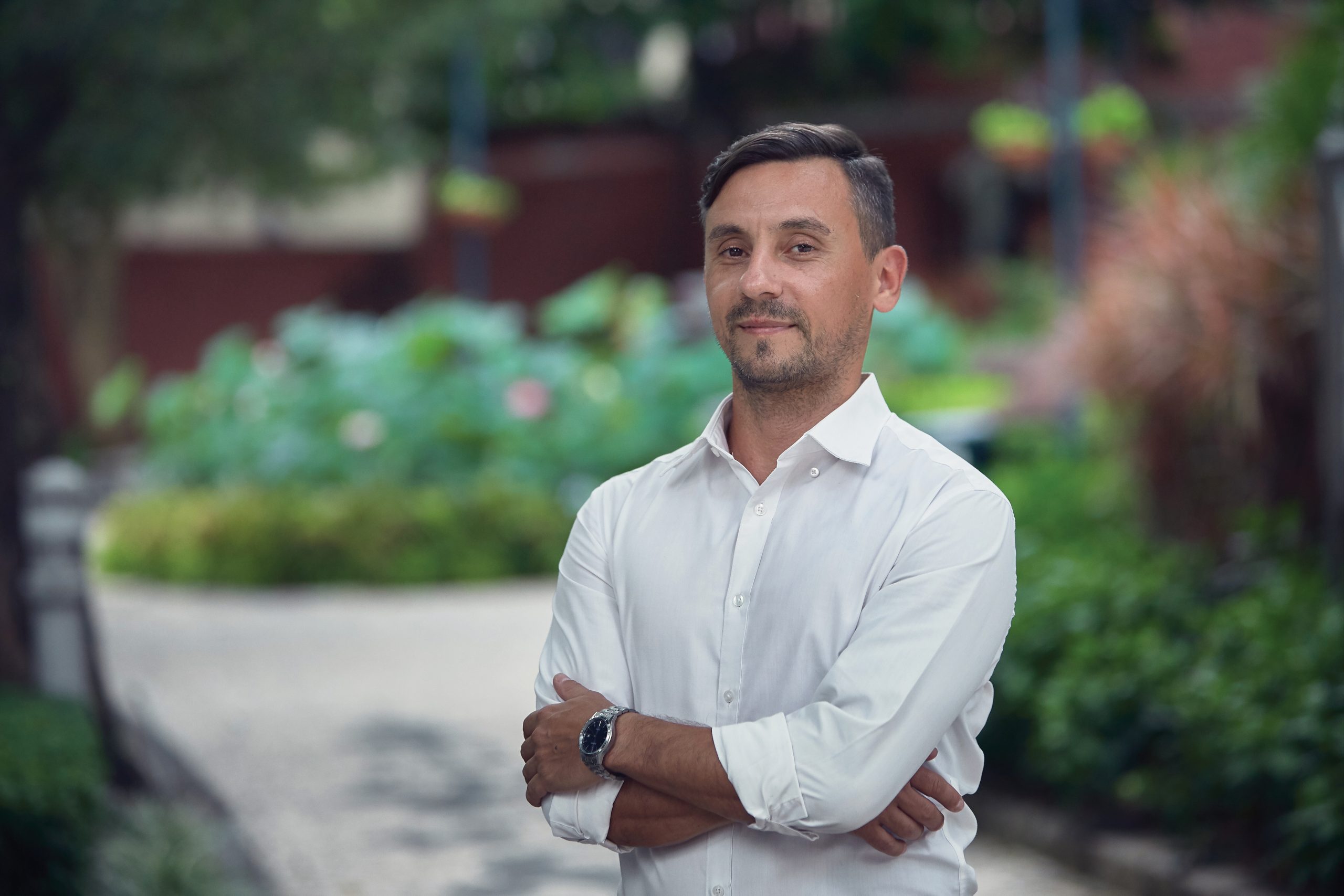
Paulo studies and teaches English at CityU, helping to set some of its curriculum. Now into his second year of his PhD in Portuguese-speaking countries studies, he is doing research on the Forum for Economic and Trade Co-operation Between Portugal and the Portuguese-Speaking Countries – also known as Forum Macao. He has started publishing research about the forum, entering conferences and even taking interviews about it on local TV. Paulo says that with financial support from the government for research and healthy competition between the city’s academic establishments, Macao has ‘all the ingredients to be an Asian research centre’.
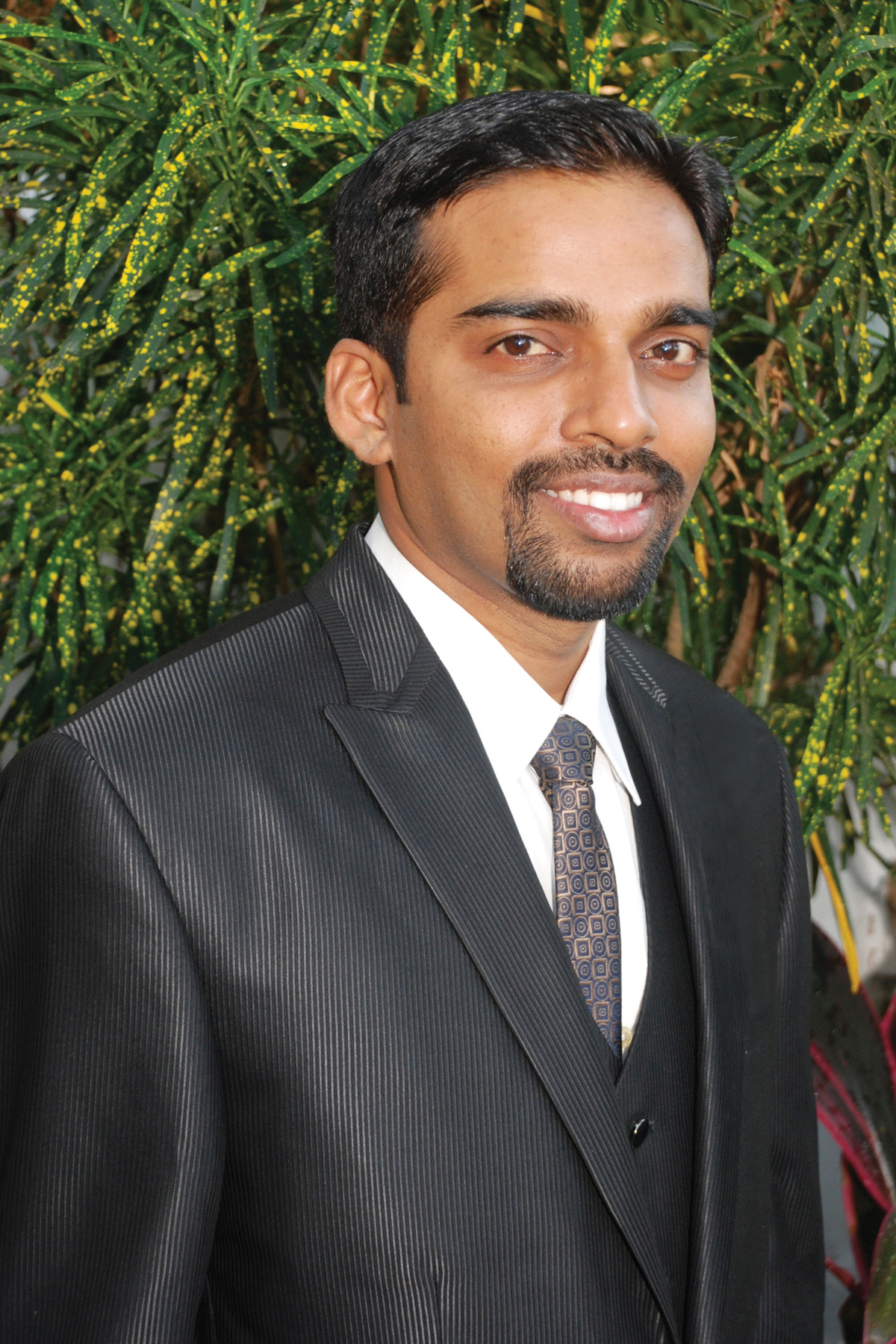
Another CityU second-year PhD student, Anthony Lobo, is looking to replicate Macao’s success in bridging continents and cultures when it comes to education. He wants to take what he’s learned about this success to his homeland of Goa, a state in western India that was a Portuguese colony prior to 1961. While he was on holiday in Macao a couple of years ago, he became fascinated with the local institutions that connect the city to the PSCs. When he learned about CityU’s Institute for Research on Portuguese-Speaking Countries, he saw it as an opportunity to make new contacts with people across the PSC spectrum and see if they could help with Goa. “It was impressive to see that Macao was trying to reconnect with its Lusophone heritage,” he says. “I feel Goa has not been able to take advantage of what was left by the Portuguese but there is so much potential there. Actually, Goa could learn from Macao and then take advantage of its Portuguese heritage like its architecture and traditions. And Goa could also set up platforms and forums for educational exchange, just like Macao has done. Its features are very similar to Macao’s.”
According to Lobo, Goa should develop links to key trade institutions in Macao. Moreover, he points out that there is a community in Macao that has its roots in Goa – one that includes lawyers and businessmen. Some of these people, he says, have ancestors who moved to the city more than 300 years ago. “I’m really getting engaged with this idea of replicating Macao’s success in Goa,” says Lobo, “and later, I want to establish links between Goa and my university on a purely educational level. I would like to do a lot more research.” He adds that he hopes his ideas will be taken up by the authorities in Goa and they will realise ‘how much they can benefit if they can adopt a similar strategy to Macao’.
These students from the PSCs are taking back with them an astonishing range of skills and the ability to operate in different languages and environments.
The new rector at the USJ, the Rev Deacon Stephen Morgan, welcomes the growing number of students from PSCs to Macao’s shores. “These students,” he says, “are taking back with them an astonishing range of skills and the ability to operate in different languages and environments.” He adds that when the students leave Macao after they qualify, they leave with ‘a broader and deeper vision of what it is to be human in the modern world’. The USJ has more than 40 nationalities represented in its student body and up to 15 more represented by its team of academics. Morgan says many of these come from the PSCs, ‘operating in English and in a very Chinese environment’.
“Macao,” concludes Morgan, “has for a long time been an absolutely unique cultural encounter – initially between Portugal and the great Chinese culture but now with the wider Lusophone world too. This is a place to encounter the Chinese and Lusophone worlds, making Macao special. We all gain massively from it.” At least 290 students are ‘gaining massively’ this year from Macao’s successful drive to attract students from across the Portuguese-speaking world.
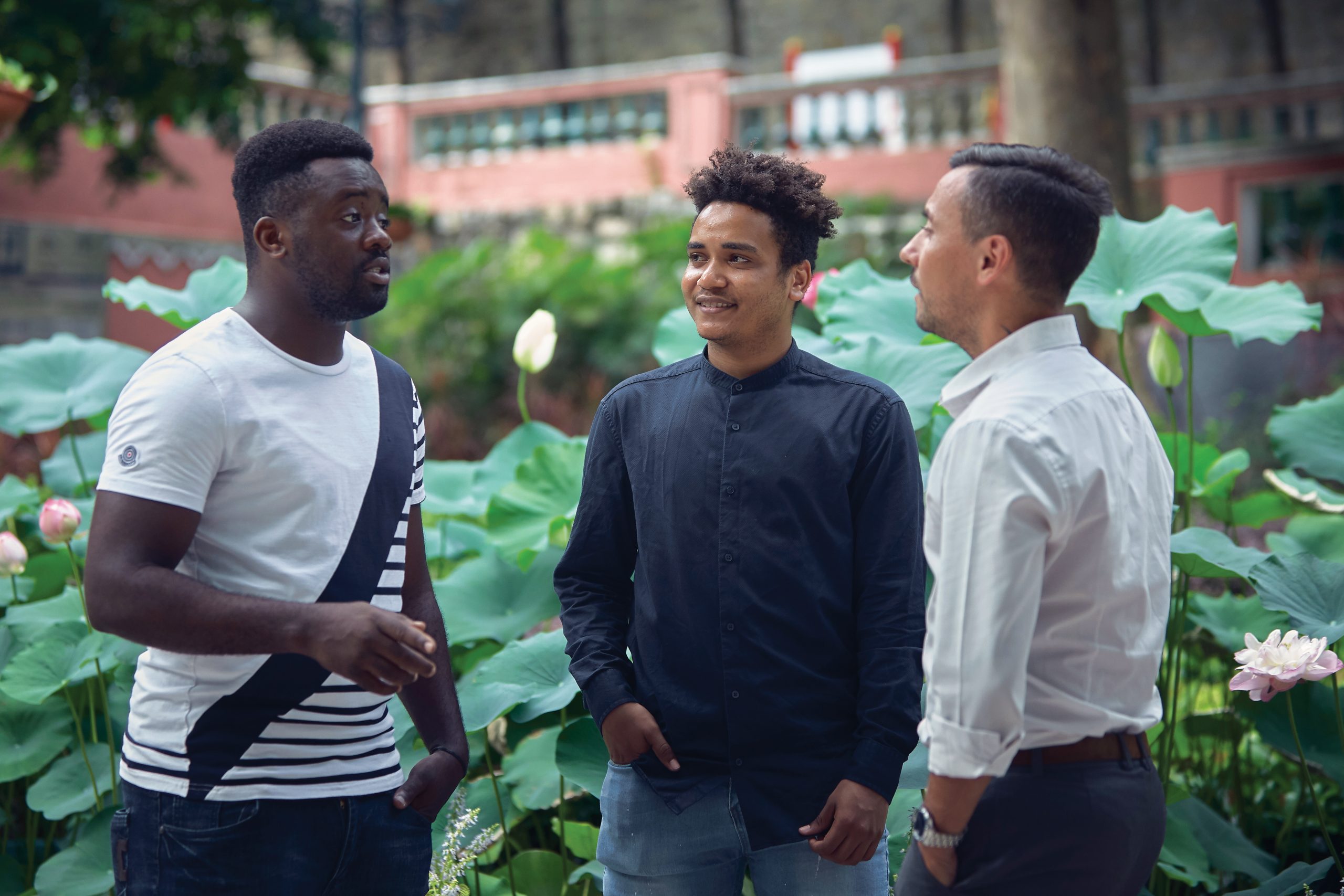
Talisman (Macao)
A poem by Pablo Titosse
There is no darkness to cover you,
You are only light but sometimes a missing peninsula,
That is born on the edge of a great body,
The perfect island for a castaway.
No matter, you’re charisma!
Your body is a crossroads in itself,
Poetry that ‘narrates’ but sometimes,
An indecipherable code… you are charisma.
Your steps are trails that do not disappear,
There from the East, straight hair and milk skin,
You can so well obscure yourself,
But sometimes, you can’t even hide,
You have so many faces that I don’t even know you,
And I’m just a heart that slows down and speeds up…
I lost control, you are so good… Macao!
But it doesn’t matter, you are charisma… you are fascination.
Fast facts on students from PSCs in Macao
Number of students from Portuguese-speaking countries per academic year:
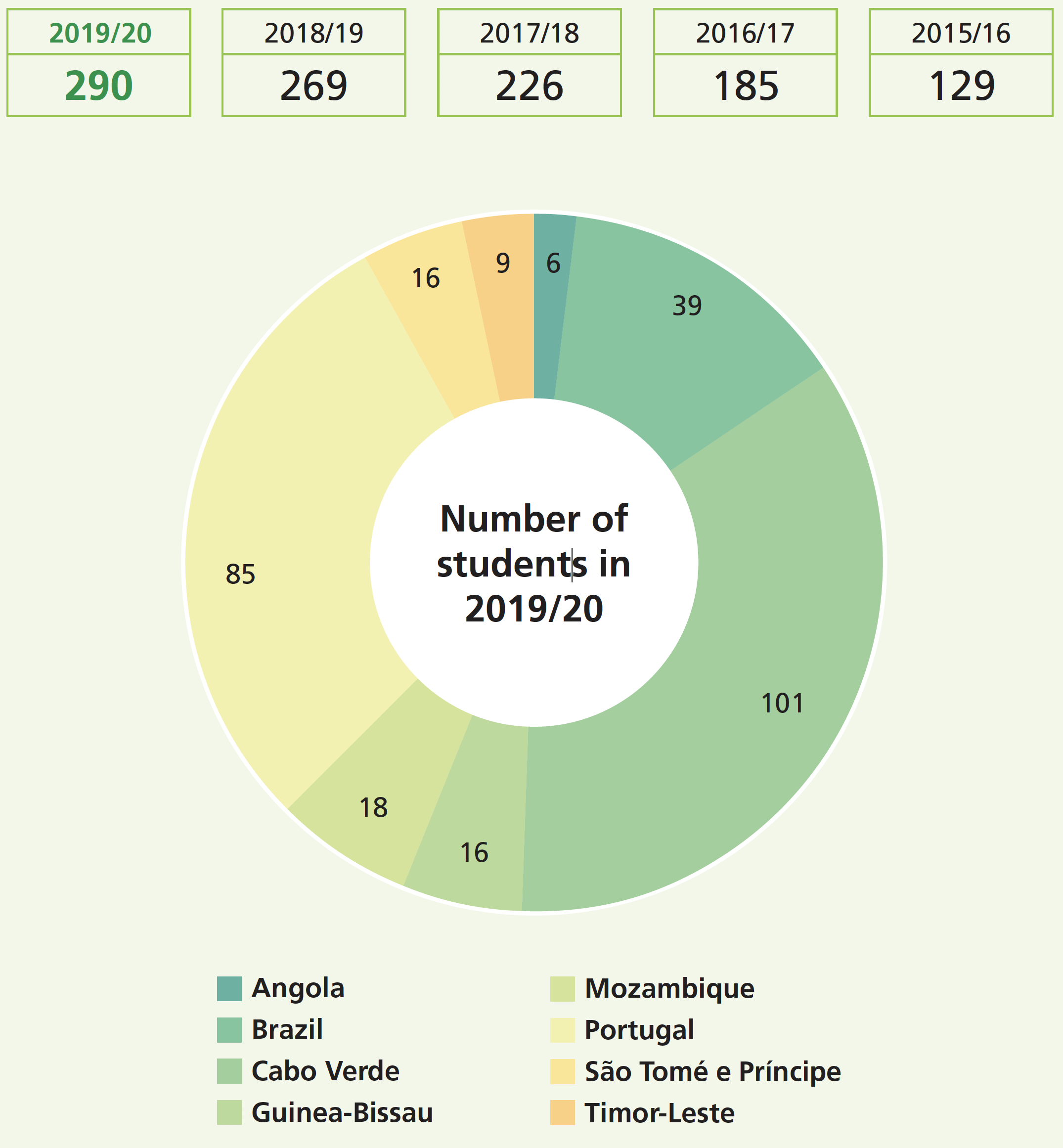
Higher education institutions they all attend: The University of St Joseph, the University of Macau, the Macao Polytechnic Institute, the Macao Institute for Tourism Studies, the City University of Macau and the Macau University of Science and Technology
Most popular courses they study: Language and literature, public administration, law, translation, gaming management, business management, engineering, journalism and communication, religion and theology, tourism and entertainment services
*Figures from the Macao government’s Higher Education Bureau
